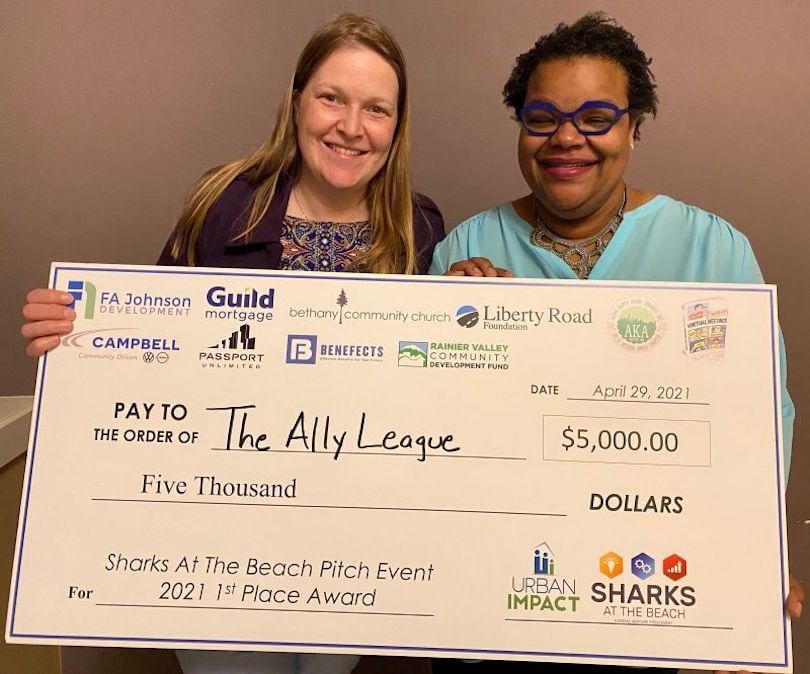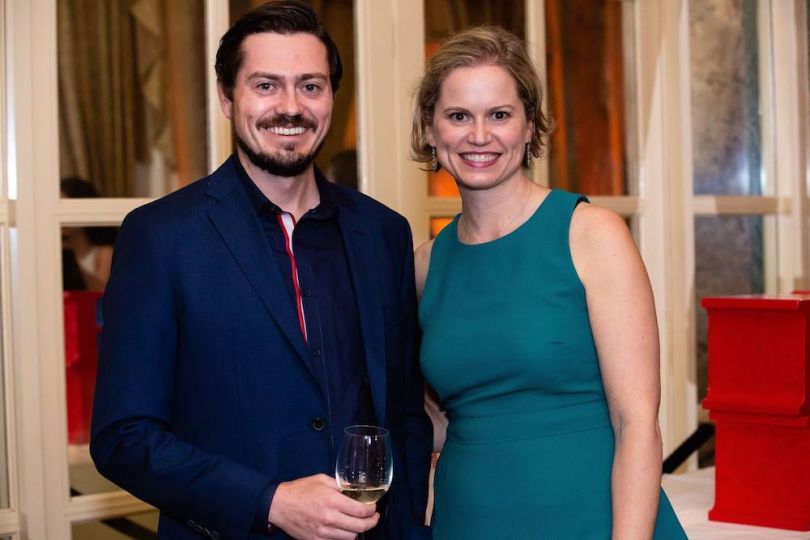Sure, the latest initiatives from the Teslas, Apples and Googles of the industry tend to dominate the tech news space — and with good reason. Still, the big guns aren’t the only ones bringing innovation to the sector.
In an effort to highlight up-and-coming startups, Built In is launching The Future 5 across eight major U.S. tech hubs. Each quarter, we will feature five tech startups, nonprofits or entrepreneurs in each of these hubs who just might be working on the next big thing.
* * *
There are plenty of large enterprise tech companies in Seattle. You have Microsoft, Amazon, Facebook, Google and so on. But there are also countless smaller tech companies doing cool and noteworthy things. They may be so small that you haven’t heard of them, but that doesn’t mean they aren’t worth knowing.
Built In has gathered a list of five young companies that are doing something interesting with the tech they’ve created. Each one is solving problems in their industry or offering a unique product. While they may not be in the national limelight (yet), they’re pioneering the way by doing something different.

Adyn (Healthtech)
Dr. Elizabeth Ruzzo studied human genomics while getting her Ph.D. at Duke University, using the latest technology in genetic sequencing to understand DNA. The human genome holds the answers to so much about what makes us who we are, yet scientists have barely scratched its surface. By studying genetics, researchers are able to uncover mysteries about our biology that have real world implications. For example, while Dr. Ruzzo was working as a postdoc at UCLA, she uncovered 16 new autism genes — implying that autism spectrum disorder may have a stronger genetic link than previously thought.
After her academic career, Dr. Ruzzo decided to use her expertise in genetics to help solve an issue that affected her personally. During her Ph.D., she switched birth controls and started to experience thoughts of suicide. Luckily she recognized this was due to the medication and switched back, but what she experienced was just one of the many harmful side effects that people experience due to their hormonal birth control.
This led Dr. Ruzzo to start Adyn in 2019. Adyn uses genetics, technology and the latest scientific research to match people to a birth control that works best for them. The company’s flagship product is its at-home Birth Control Optimization Test, which measures a person’s baseline hormonal levels, takes a DNA sample and combines that with a person’s medical records. This allows Adyn to learn more about how how a person would react to the hormonal birth controls on the market, and then recommend the safest one.
The company raised a $2.5 million seed funding round in April, which will help Adyn formally launch this product later in 2021.
“Our mission at Adyn is to close gaps caused by historic inequity in medical research and make scientific discovery more inclusive. Medical studies are biased towards males and individuals of European ancestry, which repeatedly impedes our ability to develop inclusive diagnostics and treatments that help everybody,” Dr. Ruzzo told Built In. “People who use Adyn to optimize their birth control can choose to opt in as anonymous research participants to help close the medical gender and race research gaps.”
She continued, “Adyn’s scientific approach to birth control means eliminating painful years of trial, error and even self-doubt. We offer a more personalized and effective birth control selection experience for everybody. Using genetic and hormone data, we provide all the science and support a person needs to make an informed decision.”

The Ally League (E-Commerce)
Subscription boxes are a great way to discover new products, which is why The Ally League uses the power of subscription boxes to help consumers discover more Black-owned businesses.
The Ally League’s flagship product is its Black Box, a quarterly box that features a variety of products from Black entrepreneurs. For example, its Spring 2021 box has goodies ranging from plantain chips, to eco-friendly cloth napkins, Black History flash cards and a trivia card game.
The company also sells branded “compassionist” merch to help promote allyship, as well as corporate boxes for occasions like promotions, anniversaries, back-to-office celebrations and more.
The Ally League was created in 2020 by friends Kesha Rodgers and Sara So. While people across the U.S. were coming to terms with the country’s racial inequities, Rodgers and So wanted to make a difference by helping people put their money where their mouth is. That meant supporting Black-owned businesses. Studies show that Black-owned businesses face many institutional struggles — for example, they are less funded than white-owned businesses. The Ally League believes that it can help close the racial economic inequality gap by helping consumers be more intentional about the products they buy and who they buy them from.

joe (Fintech)
You may have an affinity for your local indie coffee shop. You may even think it serves the best coffee in the city. But when small coffee businesses have to compete with an international brand like Starbucks, charm isn’t always enough to stay afloat.
Not only has Starbucks opened more than 30,000 locations across 83 markets, it has also built a great customer experience thanks to things like its loyalty program and the Starbucks app. This is one of the reasons why Starbucks stays so popular among the masses, and why even the fanciest coffee connoisseurs will sometimes turn to Starbucks for a quick cup.
My brother and I started joe here in Seattle for the sole purpose of helping the indie coffee shop community compete against the Goliaths.”
“Many coffee shop customers will choose corporate coffee chains over indie shops because they offer app-based conveniences — from ordering ahead to enjoying rewards. In fact, 70 percent of people who order ahead daily at Starbucks and other corporate coffee chains say they’d switch to supporting local shops if they had the same conveniences,” Nick Martin, the CEO and co-founder of joe, told Built In.
Seattle-based startup joe wants to level the playing field by allowing local coffee shops to offer these perks. Founded by brothers and former baristas, joe has built a suite of tech products for cafes, allowing them to do things like accept mobile and online orders, create a dashboard to analyze business data, automate marketing and provide custom deals and promotions.
Coffee shops that use joe have seen sales increase by up to 300 percent, as well as more activity during the slow parts of the day, higher average ticket amounts and higher frequency of visits.
“My brother and I started joe here in Seattle for the sole purpose of helping the indie coffee shop community compete against the ‘Goliaths’ — and now we’re proud to share that 1,000+ shops across the U.S. have signed up,” Martin said.

Makara (Fintech)
Even if you can’t explain how it works or what blockchain is, there’s no doubt you’ve heard of cryptocurrency or specific coins like Bitcoin and Ethereum. It seems like cryptocurrency has become mainstream recently, with frequent coverage by media outlets and companies starting to accept crypto as a method of payment. This is enough to get casual everyday investors paying attention to crypto. Yet at the same time, many people are too intimidated to start investing in it. Crypto’s recent crash hasn’t been very reassuring for new investors either.
But for seasoned crypto experts, this volatility is nothing new, it’s all part of investing in cryptocurrencies.
The reason this is so hard for people is because they don’t understand it.”
Crypto entrepreneurs Sadie Raney and Jesse Proudman co-founded Strix Leviathan in early 2018 — right after bitcoin soared to a high of $20,000 in late 2017, then crashed to less than half of that within weeks. Strix Leviathan was essentially a hedge fund for cryptocurrency that relied on advance software and algorithms. But hedge funds are limited in terms of who they can serve. Raney and Proudman wanted to do something bigger.
“We looked at the landscape and saw hundreds of crypto exchanges — places to go buy these assets if you know what you want to buy — but there was nobody providing guidance,” Proudman told Built In. “That was sort of the lightbulb moment. The reason this is so hard for people is because they don’t understand it. So if you can act as a guide and give investors a path and an investment strategy, it will unlock this asset class to people that otherwise are sitting on the sidelines.”
Raney and Proudman built Makara while still at Strix, and then spun it out as its own company earlier this year. Makara is a robo-advisor that uses algorithms to give people guidance on investing in crypto. It has designed a handful of baskets that allow people to invest across multiple cryptocurrencies (like bitcoin, litecoin, ethereum and more) depending on their investment strategies. On top of that, it’s the first robo-advisor for crypto that’s been registered by the SEC.
“Being the first SEC-registered robo-advisor for this asset class is the most exciting part of this journey for me,” Proudman said. “So much [in crypto] has been focused on getting around regulation versus through working with the regulation. And so being able to go about this with a vehicle that a lot of people are familiar with, paves the way for others. It’s not an easy journey we elected to take, but one that we think is worthwhile.”
Makara launched on the iOS App Store in early June. By then, it had already racked up over 20,000 early waitlist sign-ups.

Senior Place (Software)
As countless baby boomers enter their golden years, adults across the U.S. will soon have to decide the best way to take care of their older relatives. For many, that means putting them in an assisted living facility so they can get the care they need.
It can be hard figuring our which assisted living facility is right for your loved ones, which is why a lot of people turn to senior placement agencies to help make this decision. Senior placement agencies are essentially realtors for senior homes, and Seattle startup Senior Place builds the software to serve these agencies.
Senior Place was founded in 2017 by two Microsoft engineers, JD Huntington and Jason Buckingham. The idea for Senior Place was inspired by Buckingham’s experience from when his great-grandmother entered a nursing home. Although his family visited her often, the process was still difficult logistically and emotionally.
“Seniors and their families face an overwhelming volume of choices when it comes to senior care, and most family members who are helping their elderly parents do not understand the differences between all the options that are available — from various license types/services provided to the actual quality of care at any given facility,” Buckingham, who serves as the company’s CEO, told Built In.
He continued, “On top of all of this, placing a loved one in any type of facility/community can be an emotionally challenging process for families. So families frequently end up in an emotionally taxed state of mind trying to research the endless set of options without understanding all the nuances involved. If their loved one has suffered an unexpected health setback (mentally or physically), this can be an urgent problem. Many families are forced to find a facility for their loved one by essentially throwing darts at the internet, and that’s how they end up choosing the place that they will trust to take care of their elderly loved one.”
Senior Place has designed a CRM platform that allows senior placement agencies to manage all of their clients, as well as keep tabs on their needs and what services they’re looking for in a senior home. Senior Place also collaborates with senior placement agencies to best fit their needs. This technology is a big step up from the spreadsheets and paper binders that many agencies still use to track their clients. And when you’re dealing with something as important as the safety of someone’s loved one, it’s important to make sure that every detail is taken into account.
“The problem our society faces is finding ideal living situations when our elderly loved ones need greater care,” Buckingham said. “This need often arises urgently, and without the proper assistance, most of us are flying blind when we try to place our loved ones without expert help. Senior Place helps the placement agency experts so that they can better serve seniors and their families.”
Senior Place raised $180,000 from the TinySeed accelerator program in June in order to help develop its business.




